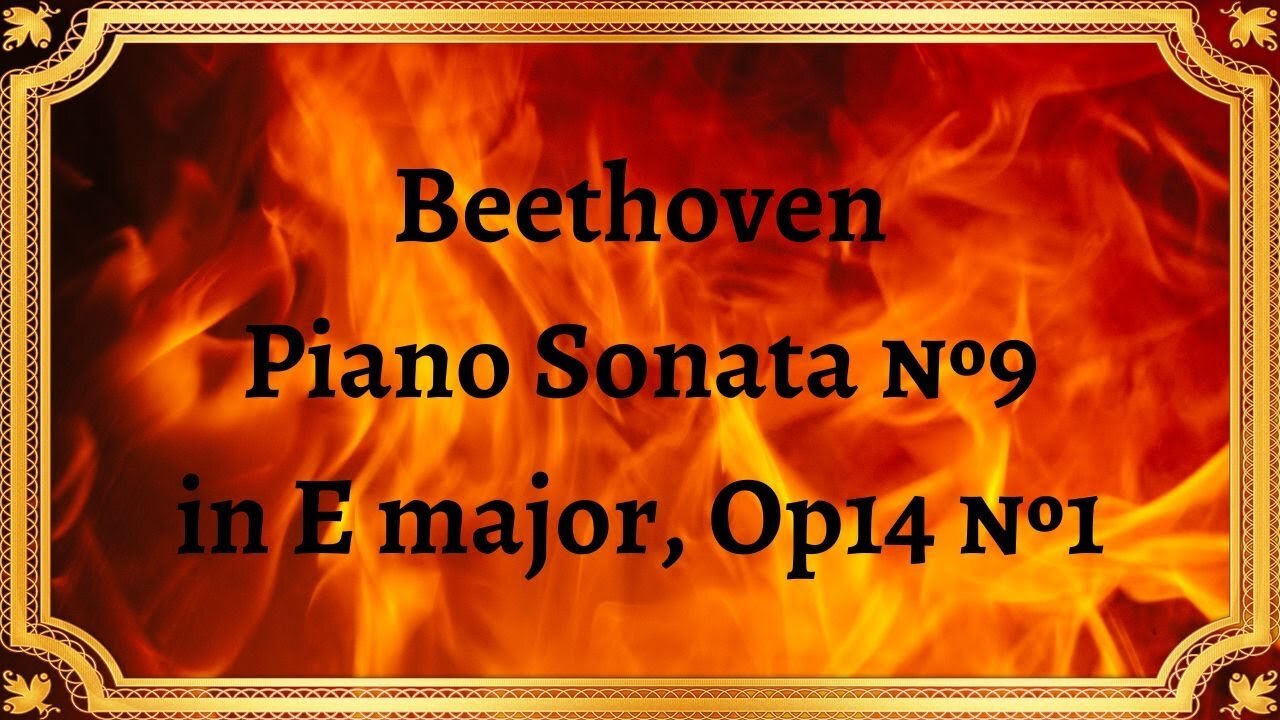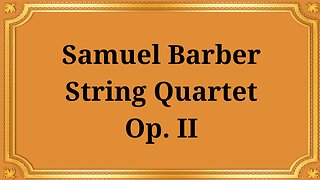Premium Only Content

Beethoven Piano Sonata No.9 in E major, Op.14 No.1
#classical_music #Beethoven #Piano_Sonata
Beethoven Piano Sonata No. 9 in E major, Op. 14 No. 1 is a captivating musical composition that showcases Ludwig van Beethoven's genius and artistic prowess.
Beethoven composed Piano Sonata No. 9 in E major, Op. 14 No. 1 in 1798, during his early period as a composer. This sonata represents a transitional phase in Beethoven's career, where he began to move away from the classical style of Mozart and Haydn and develop his unique musical language. It is a testament to Beethoven's artistic evolution and foreshadows the innovative works he would produce in the future.
The first movement, marked Allegro, is characterized by its lively and energetic nature. It opens with a joyful and catchy melody played by the right hand, which is then imitated by the left hand. Beethoven artfully explores contrasting dynamics, shifting between delicate passages and powerful chords, creating a sense of tension and release. The movement exhibits a clear sonata form structure, with an exposition, development, and recapitulation.
The second movement, marked Allegretto, provides a stark contrast to the first. It is a gentle and introspective piece, displaying Beethoven's ability to evoke deep emotions through music. The hauntingly beautiful melody is repeated and developed throughout the movement, demonstrating Beethoven's skill in creating variations. The serene and tranquil atmosphere of this movement provides a moment of respite before the energetic finale.
The final movement, marked Rondo: Allegro comodo, is a lively and spirited piece that showcases Beethoven's virtuosity as a pianist and composer. The catchy main theme, introduced at the beginning, undergoes various transformations and returns in a playful and exhilarating manner. Beethoven employs dynamic contrasts, syncopation, and rapid passages, infusing the movement with a sense of joy and excitement.
Beethoven Piano Sonata No. 9 in E major, Op. 14 No. 1 holds significant importance in the classical music repertoire. It embodies Beethoven's innovative spirit, foreshadowing the groundbreaking works he would later create. The sonata's exploration of form, expressive melodies, and contrasting emotions paved the way for Beethoven's later, more revolutionary compositions.
Throughout history, this sonata has captivated musicians and audiences alike, leaving a lasting impact on the world of classical music. Its influence can be seen in the works of subsequent composers who were inspired by Beethoven's groundbreaking approach to composition. Performances of this sonata continue to resonate with listeners, captivating them with its emotional depth and technical brilliance.
Beethoven Piano Sonata No. 9 in E major, Op. 14 No. 1 stands as a testament to Ludwig van Beethoven's musical genius and his ability to transcend the conventions of his time. Its historical significance, rich musical elements, and lasting impact make it a cornerstone of classical music repertoire.
-
 16:45
16:45
Classical music_Music Inspiration
1 month agoSamuel Barber String Quartet, Op. II
662 -
 30:17
30:17
Simply Bitcoin
2 hours agoBitcoin Crucible Episode 2 w/ Alex Stanczyk
9471 -
 1:33:20
1:33:20
Dear America
4 hours agoGUEST: ERIC TRUMP! Dems ADMIT to Shutdown! + Feds Move to Tennessee!!
106K33 -
 2:24:37
2:24:37
Matt Kohrs
13 hours agoROCKETING TO NEW HIGHS 🚀🚀🚀 (Stock Market Open) || Live Trading Futures & Options
37K3 -
 2:59:42
2:59:42
Wendy Bell Radio
7 hours agoDemocrats Are Getting CLOBBERED
57.3K91 -
 LIVE
LIVE
LFA TV
6 hours agoLIVE & BREAKING NEWS! | THURSDAY 10/2/25
4,225 watching -

Chad Prather
16 hours agoWhen God Delays: Trusting Jesus in the Waiting Room of Life
50.4K6 -
 2:00:39
2:00:39
The Chris Salcedo Show
15 hours ago $10.20 earnedThe Democrat's Schumer Shutdown
49.9K5 -
 30:32
30:32
Game On!
20 hours ago $4.05 earned20,000 Rumble Followers! Thursday Night Football 49ers vs Rams Preview!
50.3K4 -
 1:26
1:26
WildCreatures
14 days ago $5.04 earnedCow fearlessly grazes in crocodile-infested wetland
51.7K6